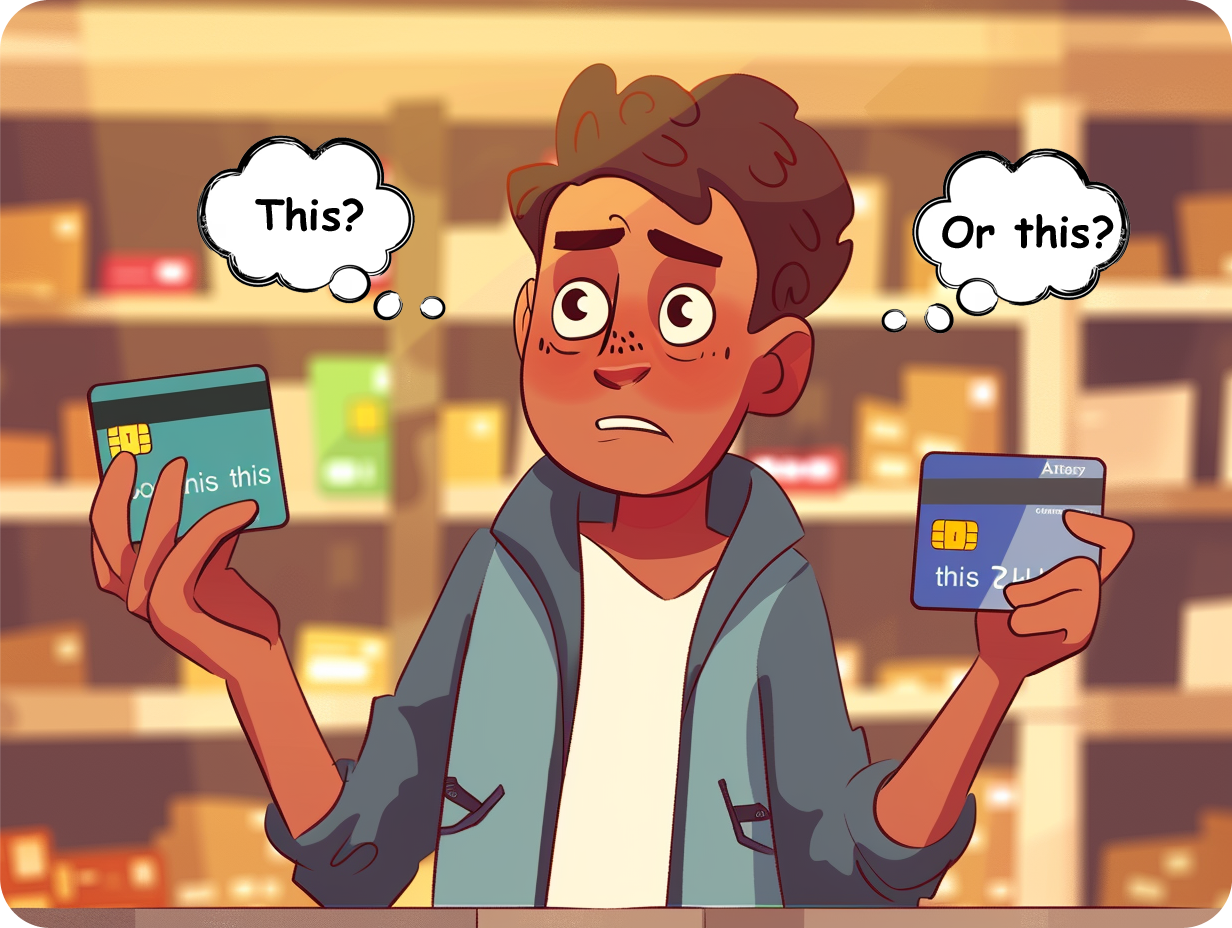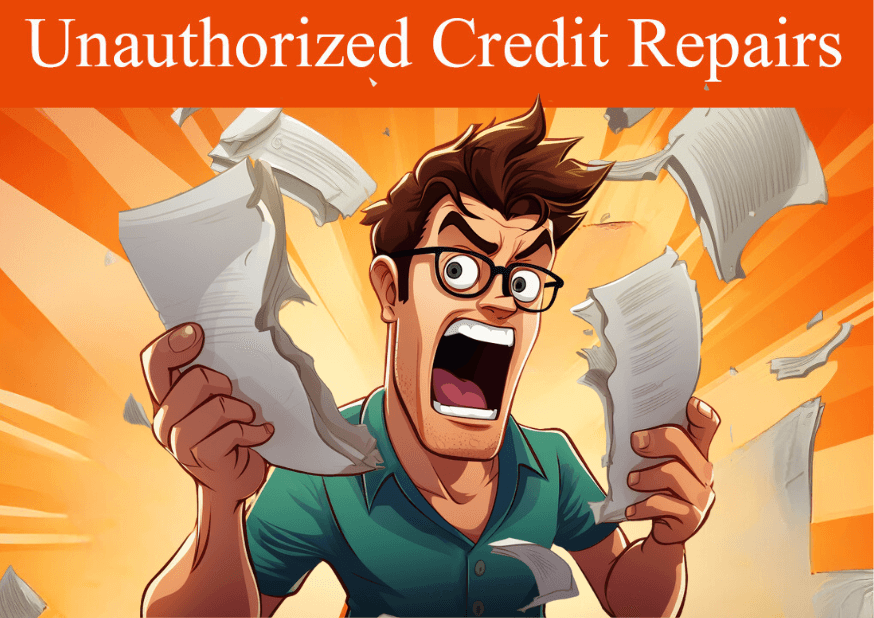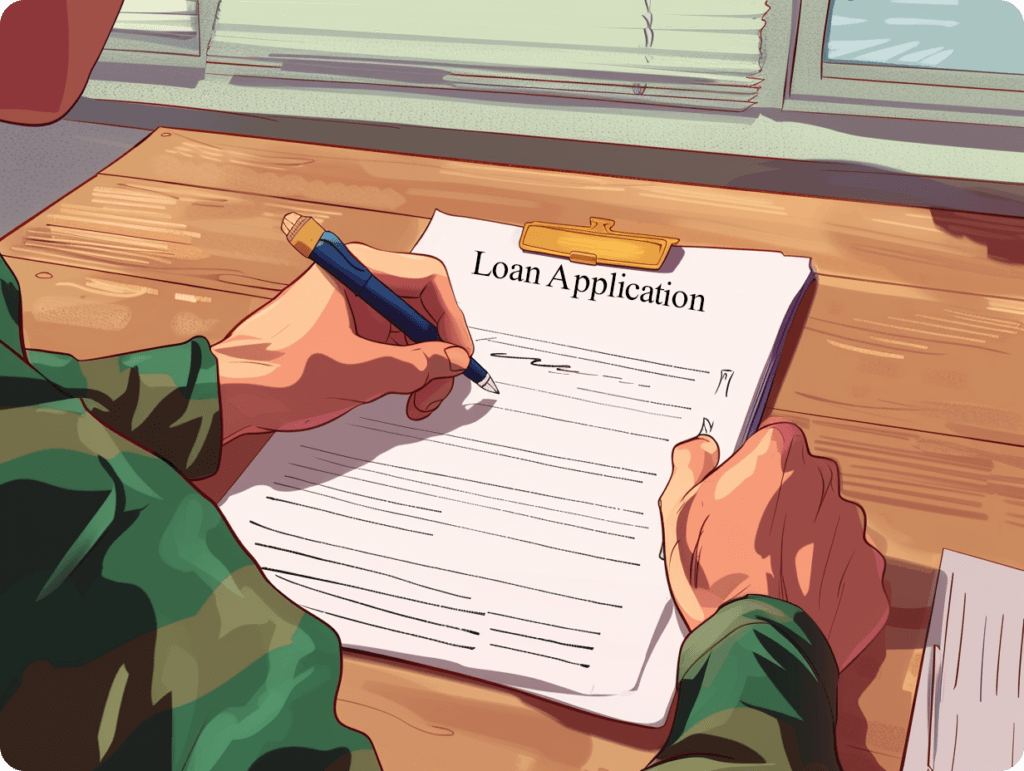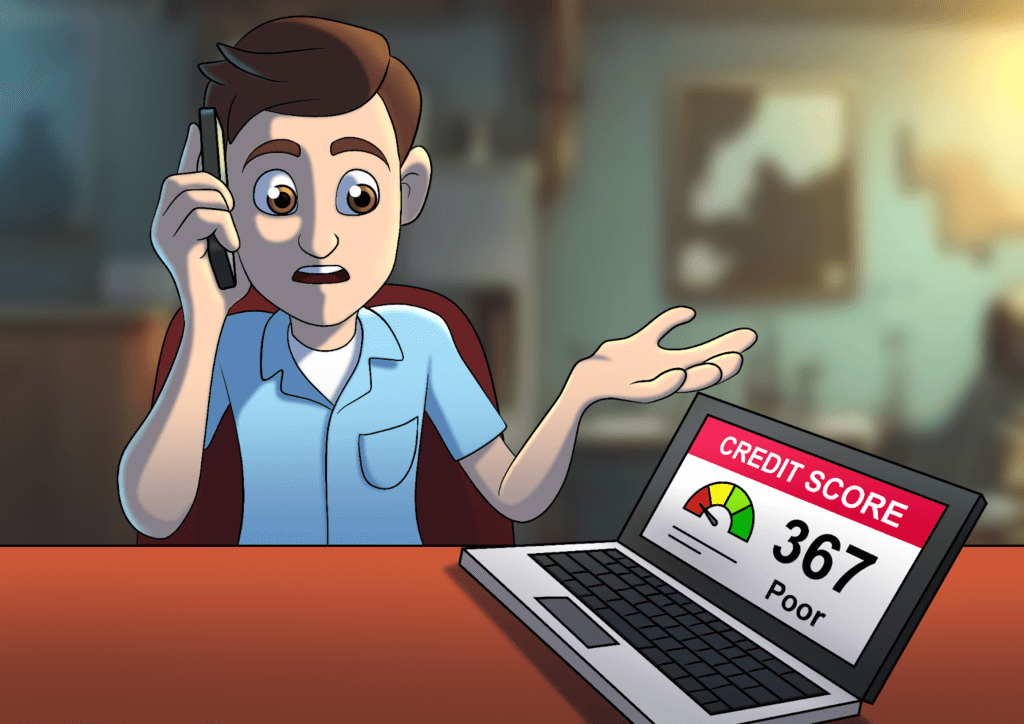- Blogs
- /
- How Old Do You Have to be to Have a Credit Card?
How Old Do You Have to be to Have a Credit Card?

Summary
Have you ever wondered about the magic age for getting a credit card? Curious minds often ponder, how old do you have to be to have a credit card? Well, let’s dive into this financial mystery and uncover the facts.
Navigating the world of credit cards can be exciting and daunting, especially for those new to the concept. Understanding the age requirements, types of cards available, and the responsibilities of owning a credit card is crucial for making informed decisions.
This guide provides key insights into obtaining and managing a credit card responsibly, from the importance of building a credit history early to understanding the role of co-signers.
From legal requirements to responsible money management, understanding the age criteria for obtaining a credit card is crucial. By arming yourself with this knowledge, you can confidently embark on your financial journey and make wise choices regarding your first credit card. Let’s unravel this old-age question together!
Key Takeaways
- Being ready for a credit card is shown by key signs. They are financial independence, budgeting skills, and credit understanding.
- Different regions have varying minimum age criteria for obtaining a credit card. Understanding these regulations is crucial to avoiding any legal issues.
- Becoming an authorized user of someone else’s credit card can provide real experience with using credit responsibly.
- Building a positive credit history from a young age can set you up for financial success later.
- Secured cards require a cash deposit, while unsecured cards do not. However, they may have higher interest rates.
- Co-signers are crucial for individuals who are not eligible for a credit card.
- Pre-approved checks are a convenient way to access credit without applying formally. They provide insights into your approval odds for various purchases.
- Set a low credit limit, monitor your spending, pay off the full monthly balance, and use the card well to build good credit early on.
- Credit cards often offer welcome bonuses. But, be aware of annual fees. Calculate if the benefits justify the cost.
How Old Do You Have to Be to Have a Credit Card: Age Requirements

1. Legal Minimum Age
When considering age requirements for credit cards, you must check your area’s laws. Different regions have varying minimum age criteria for obtaining a credit card. Understanding these regulations is essential to avoid any legal issues.
Researching the specific age limits set by different credit card companies is also essential. Some may require applicants to be at least 18 years old. Others might allow those as young as 16 to apply for a credit card. It’s vital to be aware of these variations before applying.
Legal restrictions can make applying for a credit card before turning 18 challenging. However, one option is to become an authorized user on someone else’s credit card. This allows people under 18 to use a credit card. But they’ll have limits and duties.
2. Authorized User
Becoming an authorized user of someone else’s credit card can provide hands-on experience. You can use the card to learn to use credit well. However, it’s crucial to understand that, as an authorized user, you are not the main account holder. You may have limited control over the account.
Learning how being an authorized user impacts your credit score is essential. This setup can help build good credit if payments are made on time. But it also hurts your score if there are missed payments or high balances.
You should understand the responsibilities and limitations associated with being an authorized user. Talk openly with the main account holder. This will help maintain a healthy financial relationship. Be sure to discuss spending limits and payment expectations.
Importance of Early Credit
1. Building Credit History
A positive credit history from a young age can set you up for financial success later. To kickstart your credit journey, apply for a secured credit card. Make small purchases and pay them off each month. This will show responsible credit use.
Monitor your credit report regularly to ensure accuracy and track your progress. Look out for any errors or discrepancies that could negatively impact your score. You can quickly fix problems and keep a good credit profile by staying informed.
Strategies like paying on time and using little credit are key. They build strong credit, show lenders you are reliable and responsible, and boost your chances of getting future loans or mortgages.
2. Long-term Benefits
Having a good credit score opens doors to various opportunities down the road. A solid credit history can lead to lower loan interest rates, saving you money in the long run. It also reflects positively on your financial trustworthiness.
Understanding how your credit behavior today affects tomorrow is crucial. Good credit practices are important early on. They make big, smoother purchases, like buying a car or getting housing.
Planning for big life milestones requires foresight. Examples include buying a home or starting a business. You need to build and keep good credit. Start these habits early. Then, when the time comes, you’ll be well-prepared financially.
3. Financial Responsibility
Emphasize the importance of exercising caution and financial discipline when using credit cards. Create a budgeting system. It should outline your income and expenses and show the monthly maximum you can charge on your card.
Avoid debt traps. Don’t overspend beyond what you can repay. Pay off balances in full each billing cycle first. This will prevent accruing high-interest charges over time. Responsible borrowing leads to better financial stability in the long run.
Types of Credit Cards
1. Secured vs Unsecured
Secured credit cards require a cash deposit, typically equal to the credit limit. This deposit provides a safety net for lenders. Unsecured cards do not need a deposit but may have higher interest rates.
Secured cards are good for people with limited or poor credit history. This is true when comparing them to unsecured options. They offer a chance to build or rebuild credit through responsible use. Unsecured cards are for people with good credit and habits. They are not for those without these.
With secured cards, the initial deposit acts as collateral in case of non-payment. This reduces risk for lenders and makes it easier to qualify even with no credit history. Unsecured cards rely solely on the applicant’s financial standing without collateral requirements.
2. Student Cards
These cards are for college students. They have limited incomes and short credit histories. These cards often have lower credit limits. They also have simple approval processes tailored to students.
Student cards have one advantage: They offer young adults chances to start building credit early. By using these cards well, students can form good habits, which will help them in the long run when they apply for larger lines of credit.
Some student card issuers provide rewards programs for young consumers. They offer incentives. For example, cash back on purchases related to student expenses like textbooks or groceries.
3. First-time Options
For new to credit, first-time options include starter or beginner credit cards. They are designed for those without any borrowing experience. These entry-level cards typically feature low limits and essential benefits suitable for beginners.
First-time options focus on simplicity and ease of use. They are ideal for those dipping their toes into personal finance. Once users gain confidence in managing their finances well, they become stepping stones to more advanced borrowing.
Co-Signer Role

Understanding Co-Signers
Co-signers are crucial in helping individuals who are not eligible for a credit card. They act as guarantors for the primary cardholder. By agreeing to co-sign, they take on the duty to repay any debts from the main cardholder.
People need co-signers if they lack a credit history or are under 21. This setup allows people with little credit experience to get credit cards and start building their credit. However, co-signers are equally liable for any missed payments or account defaults.
Having a co-signer has one advantage. It can help people learn good credit habits early on. By paying on time and keeping low balances, the main cardholder and the co-signer can benefit. They will see their credit scores improve over time.
Without Co-Signers
Obtaining a credit card can be more challenging for individuals who do not have access to a co-signer. Without a financial vouch, they may need other options. For example, secured credit cards.
Secured credit cards require an initial deposit as collateral. The deposit becomes the user’s line of credit. These cards may have lower spending limits at first. But they let people without co-signers show they can manage credit well.
Another option for those without co-signers is to become an authorized user on someone else’s account. This allows them to use another person’s credit card with permission. But they aren’t legally responsible for repaying any debts incurred.
In tough situations, it is hard to get a normal unsecured credit card without a co-signer. But using these options can still pave the way. It lets people start building their credit. Doing so will eventually qualify them for other unsecured cards.
Pre-approved Checks: Checking Status
Pre-approved checks are a convenient way to access credit without applying formally. They offer a quick and easy way for people to see their approval odds for different purchases. Pre-approved checks can show if you are eligible and how old you must be to get a credit card.
Review any mail or email notifications you get. They will show the status of your pre-approved offers. These messages will describe the offer and include its details, including approval odds and the next steps for getting the credit line. You can visit the issuer’s website. Enter the unique code from the offer to view your status online.
Another way to check your pre-approved status is to contact the credit card company. They can check if you have any pre-approved offers. Just give them the needed info, like your name and address. This direct approach allows for immediate clarification on your approval odds. It helps you see if you meet the criteria for getting a credit card.
If you’re considering using a pre-approved check, it’s essential to understand that these offers do not guarantee approval. They indicate approval odds. However, final approval still depends on factors. These include income verification and credit history. So, review all terms before using a pre-approved check. It is crucial.
Managing First Card
1. Successful Management
Firstly, set a low credit limit to avoid overspending and accumulating debt. Monitor your spending regularly to stay within your budget. Pay off the full balance each month to avoid interest charges.
Remember that late payments can hurt your credit score, so always pay on time. Review your statements monthly to keep track of your expenses. Consider setting up automatic payments for convenience.
A good credit history early on is essential to using the card responsibly. Avoid maxing out the card’s limit, which can negatively impact your credit score. Seek guidance from financial experts if needed.
2. Avoiding Common Mistakes
One common mistake is ignoring the fine print of the credit card agreement. Always read and understand the terms and conditions before using the card. Be aware of fees, interest rates, and penalties.
Another mistake is applying for many cards at the same time. This can lower your credit score. Start with one card and gradually build up credit over time.
Finally, be cautious about sharing your card information. This prevents fraud or unauthorized transactions. Keep your card secure. Report any suspicious activity to the bank or issuer right away.
Welcome Bonuses and Fees
1. Exploring Bonuses
Credit cards often offer enticing welcome bonuses to attract new customers. These bonuses can range from cashback rewards to airline miles or hotel points. Getting a credit card with a welcome bonus can help if you plan to make big purchases soon. You must read the terms carefully, as they explain how to qualify for the bonus.
One key factor is the minimum spending requirement to unlock the welcome bonus. For example, a credit card may offer $200 cashback. You get it after spending $1000 in the first three months of opening the account. This could be a great way to earn extra rewards if it aligns with your regular expenses. However, be cautious not to overspend to meet the requirement, as it may lead to unnecessary debt.
Also, consider any extra perks beyond the initial reward. Some cards provide benefits. These include extended purchase warranties, travel insurance, and discounts at specific retailers. These extras can add much value over time. They will enhance your experience with the credit card.
2. Annual Fees
Many credit cards have no annual fee. But others may charge an annual fee of $50-$500 or more. The fee depends on the benefits offered.
Before applying for a credit card with an annual fee, check if you will use enough features and rewards. They should justify the cost. Some premium cards justify fees. They do this by offering high-value perks. These perks include things like airport lounge access or concierge services.
Decide if an annual fee is worth it. Calculate how much you would need to spend each year using the card’s benefits. This is before you surpass what you would pay in fees. For example, if a card costs $150 per year but gives $300 in travel credits and free hotel stays annually, it could be a good deal. This is if you often use these perks.
Also, consider how long you will keep that credit card. If you plan to cancel after a few months, paying an annual fee might not make sense. That is, unless there are immediate sign-up benefits.
APR and Credit Limits

1. Understanding APR
Credit cards come with an Annual Percentage Rate (APR). It is the interest rate applied to your balance. This rate varies based on factors like credit score and market conditions.
Understanding that a lower APR means less interest paid over time is crucial. When you carry a balance, the APR determines how much extra you’ll pay on top of what you owe each month. Paying the full balance on your credit card helps you avoid high interest. It’s a responsible way to manage it.
One key aspect to remember about APR is that it can change for many reasons. These include economic changes or missed payments. If you’re considering getting a credit card, compare the APRs of different cards. Find one that best suits your financial habits. You must be aware of promotional rates. They may change after an initial period. By knowing these details, you can make smart credit card choices.
When you use a credit card for purchases or cash advances, you need to understand how the APR affects your debt. It’s good not to just focus on rewards and benefits. You should also consider the long-term impact of high rates on unpaid balances. Be cautious with spending and repay on time. This way, you can manage your credit card expenses and avoid interest costs.
2. Navigating Credit Limits
Credit limits refer to the maximum amount of money you can borrow using a credit card. Issuers set these limits based on income, credit history, and existing debts.
It is crucial to monitor your spending compared to this limit. This is key to good financial health. Keeping track of your available credit helps prevent overspending and potential debt accumulation.
It’s important to stay within your credit limit. You should aim for a low utilization rate below 30% of the total limit. Exceeding this threshold could hurt your credit score.
Check your statement often. It has updates on available credit and your current balance, which can help you avoid accidentally exceeding limits. Yes, having a high credit limit may seem good for emergencies or big purchases. But it’s essential to use it wisely and avoid excessive debt.
Signs of Readiness
1. Financial Independence
Financial independence is a crucial factor when considering getting a credit card. Being financially independent means having a stable income source to repay any credit card charges. Without this, accumulating debt becomes a risk.
When you are financially independent, you show that you can manage your expenses responsibly. Handling this responsibility is crucial. It helps prevent the dangers of owning a credit card. Being financially independent also helps build good credit, which is vital for future financial endeavors.
One key sign of being ready for a credit card is being able to budget effectively. You need budgeting skills. They ensure you can pay your monthly credit card balance. Understanding how much money comes in and goes out regularly is essential.
Another part of being ready for a credit card is understanding interest rates. You must also understand the fees. Knowing these details helps make informed decisions about spending and repayment strategies. Lack of knowledge about these aspects can lead to high debt levels.
2. Credit Knowledge
Understanding how credit works is fundamental before applying for a credit card. Knowing what an APR and Credit Limit are is crucial. This knowledge is key for managing a credit account well.
You must understand what an APR represents. It’s the cost of borrowing on your credit card if you carry over balances. A lower APR means less interest over time, making it easier to manage debt well.
Credit limits show the maximum you can borrow. You can use them with your credit card at any time. Exceeding this limit may result in penalties or declined transactions, harming your finances.
Final Remarks
You’ve learned about the age requirements for getting a credit card. You’ve also learned the importance of starting early, the card types, and the role of a co-signer. Managing your first card well is crucial. It sets the tone for your financial journey.
Remember, welcome bonuses might be tempting. But watch out for the sneaky fees that come with them.
Understanding APR and credit limits will help you navigate the world of credit cards and increase your confidence. Remember to look for signs that show you’re ready to take this step.
Now that you’ve armed yourself with all this knowledge. It’s time to assess your readiness for your first credit card. Take a moment to reflect on what you’ve learned and make an informed decision. Your financial future is in your hands!
FAQs
How old do I have to be to get a credit card?
You must usually be 18 years old to get a credit card. However, some issuers offer student cards with lower age limits and allow minors to become authorized users on a parent’s account.
What are the signs that show I am ready for a credit card?
If you can manage money well, understand credit, and have a steady income, you might be ready for a credit card. To build good credit habits, it’s crucial to pay bills on time and avoid overspending.
Can someone else co-sign for my first credit card?
Yes, having a co-signer can help you qualify for your first credit card if you have limited or no credit history. Remember that both parties share responsibility for the debt, so make timely payments.
What is APR when it comes to credit cards?
APR stands for Annual Percentage Rate. It represents the cost of borrowing money on your card. It includes interest rates and additional fees charged by the issuer. A lower APR is better because it means less interest paid over time.
Are there any benefits of getting pre-approved checks from credit card companies?
Pre-approved checks from issuers may seem convenient, but proceed with caution. They often come with high-interest rates and fees compared to other offers. Make sure to read the terms carefully before using these checks.
Our Latest Blogs:
FREE Strategy Session to Fix Your Credit Blogs / Facebook Twitter Linkedin Instagram Share Summary Here’s how to remove...

ThisIsJohnWilliams

ThisIsJohnWilliams
FREE Strategy Session to Fix Your Credit Blogs / Facebook Twitter Linkedin Instagram Share Summary Find out the validity...

ThisIsJohnWilliams
FREE Strategy Session to Fix Your Credit Blogs / Financial stability is the cornerstone of well-being, so understanding the...

ThisIsJohnWilliams
FREE Strategy Session to Fix Your Credit Blogs / Facebook Twitter Linkedin Instagram Share Summary Unlock the secrets to...

ThisIsJohnWilliams






